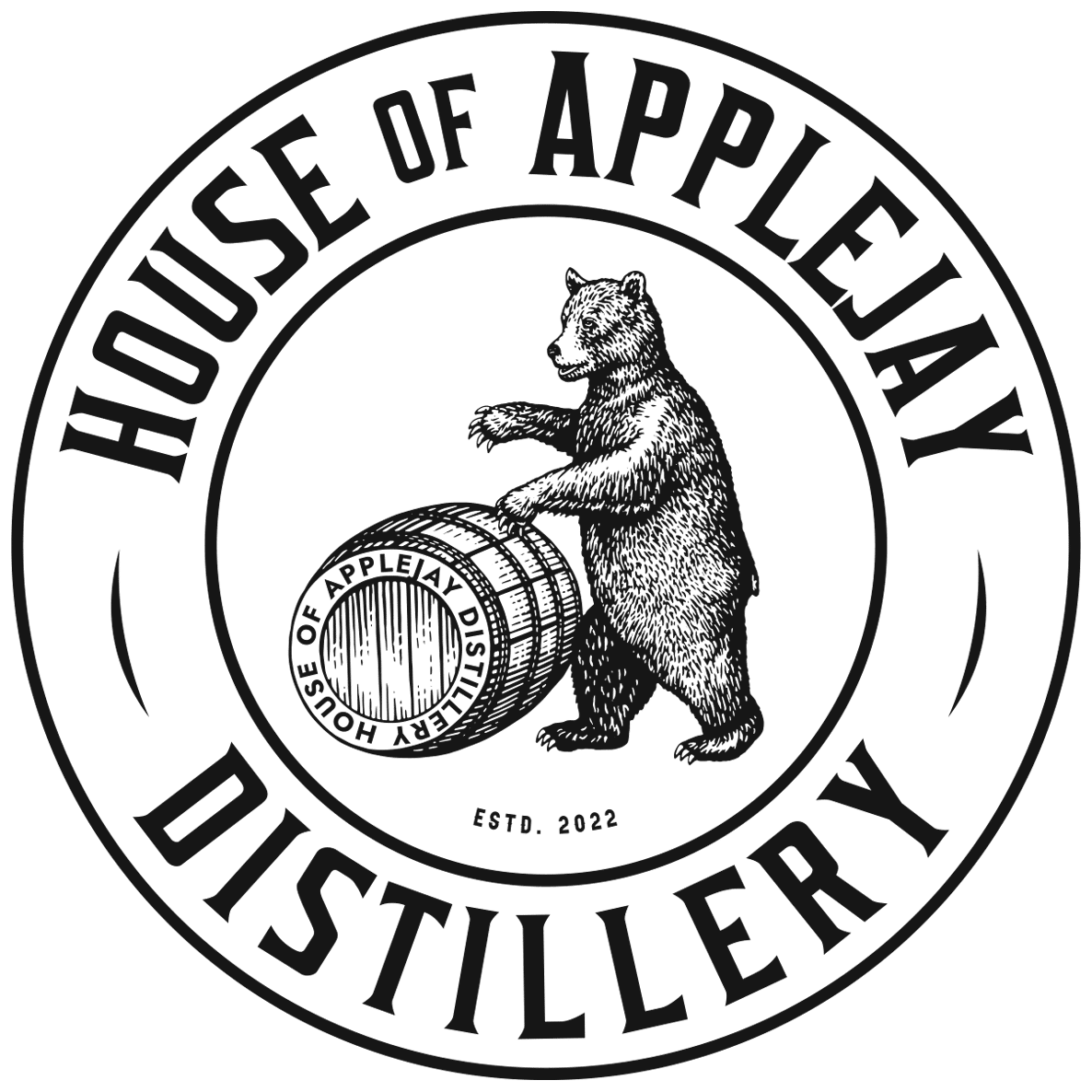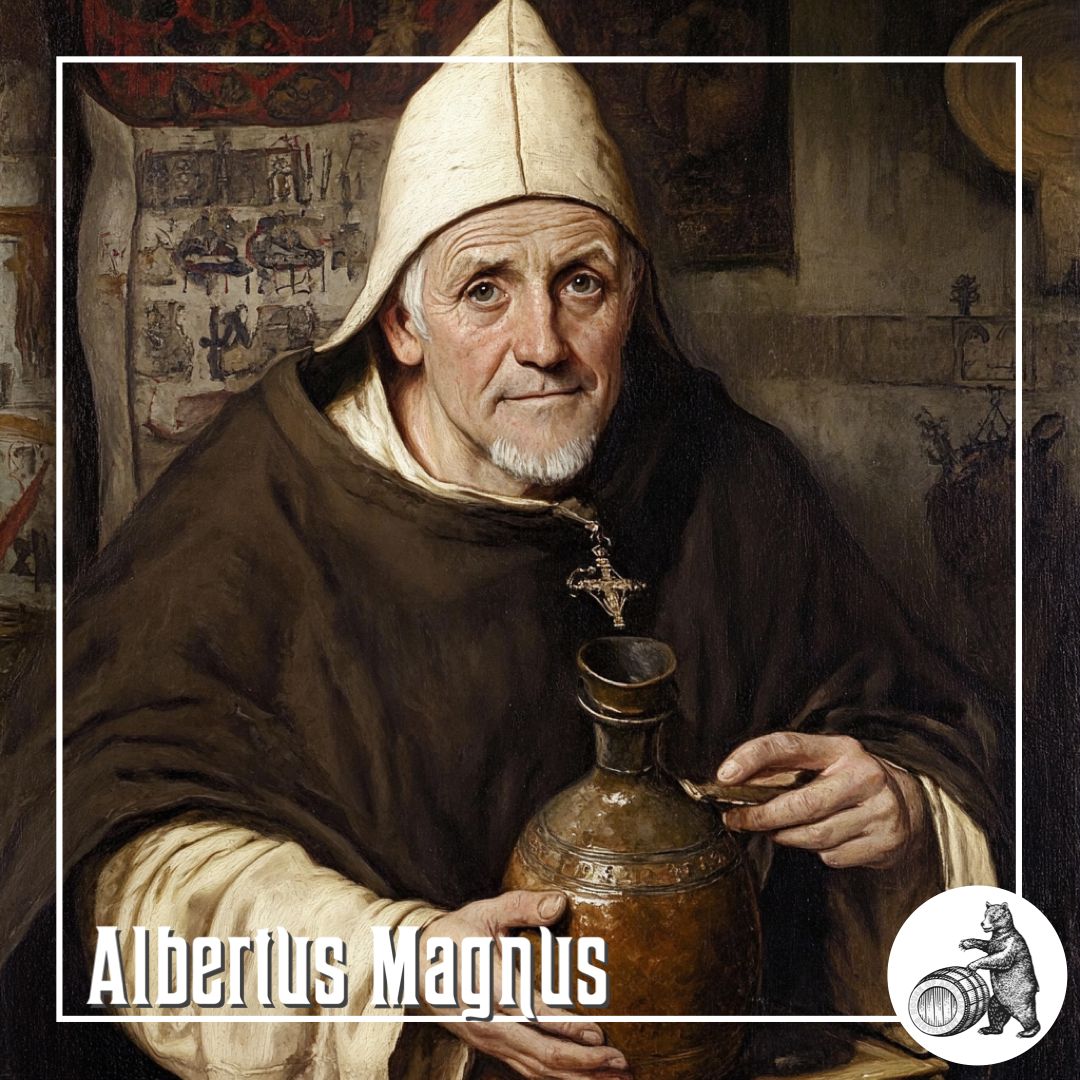Albertus Magnus
The Scholar Who Shaped Science and Distillation
Albertus Magnus, also known as Saint Albert the Great (circa 1200–1280), is a towering figure in the history of science, philosophy, and theology. Born in Lauingen, Bavaria, Germany, Albertus earned his place as one of the most influential thinkers of the Middle Ages. He is celebrated for his encyclopedic knowledge, which spanned subjects as diverse as botany, zoology, mineralogy, and alchemy—the last of which connects him profoundly to the art of distillation.
The Life of Albertus Magnus
Albertus Magnus was a scholar and teacher who dedicated his life to the pursuit of knowledge. After joining the Dominican Order around 1223, he studied in Paris and Cologne, Germany, eventually becoming a renowned theologian and scientist. By 1245, he was teaching in Paris and mentoring Thomas Aquinas, one of the most influential theologians of the Catholic Church.
In 1254, Albertus became provincial of the Dominican Order in Germany, balancing administrative duties with his intellectual pursuits. He retired in 1274 but continued his scholarly work until his death on November 15, 1280. Canonized in 1931, Albertus is also the patron saint of natural scientists, recognized for his groundbreaking contributions to understanding the natural world.
Albertus Magnus and the Art of Distillation
Among Albertus’ many contributions to science and alchemy, his work on distillation stands out as particularly significant. Alchemy, a precursor to modern chemistry, was deeply intertwined with the pursuit of knowledge about the transformation of substances. Distillation, in particular, played a central role in alchemical practices as a method for purifying and concentrating liquids, extracting essential oils, and preparing medicinal tinctures.
Albertus Magnus explored the art of distillation extensively, documenting the processes and apparatus used in his era. His observations are preserved in his treatise De Mineralibus (On Minerals), written around 1250. In this work, he detailed techniques for heating and condensing vapors to isolate pure substances. Albertus described early distillation devices, including alembics and retorts, and provided insights into their construction and operation. He emphasized the importance of materials such as glass and copper for their durability and resistance to chemical reactions, which ensured the purity of the final distillate.
Albertus highlighted the role of temperature control, noting that gradual and consistent heating was crucial for separating volatile components without degrading them. His meticulous approach allowed alchemists to achieve more refined and reproducible results. These principles not only improved the production of medicinal tinctures but also laid the groundwork for the distillation of spirits.
Albertus also explored the purification of substances through repeated distillation, recognizing that each cycle enhanced the concentration and clarity of the final product. This technique, known as rectification, became a cornerstone of modern distillation practices. His writings detailed the practical applications of distilled substances, including their use in medicine, perfumery, and even early experiments in creating potable spirits.
Theoretical Contributions to Alchemy
Albertus Magnus did not merely describe the mechanics of distillation; he also sought to understand the theoretical underpinnings of the process. He viewed distillation as a means of extracting the essence or “spirit” of a substance, aligning with the alchemical goal of uncovering the fundamental nature of matter. This perspective resonated with the broader philosophical and theological themes in his work, which often sought to bridge the material and spiritual worlds.
His emphasis on empirical observation and experimentation marked a departure from purely speculative approaches to alchemy. Albertus’ meticulous documentation of distillation techniques and their results set a standard for future alchemists and scientists, including figures like Arnold of Villanova and John of Rupescissa. These later practitioners built on Albertus’ work to advance the understanding of distillation, leading to innovations that laid the groundwork for modern chemistry.
Bridging the Past and Present
Albertus Magnus’ fascination with the natural world and his pioneering work on distillation remain relevant today. His methods of isolating pure substances and controlling precise conditions have influenced modern practices in crafting spirits, extracting essential oils, and preparing medicinal extracts.
The Distilling Culture
BLOG
Embark on a global journey, and you’ll find that cultures possess tales that harken back to their ancient beginnings of distillation, brewing, and winemaking.
info@houseofapplejay.com
67 Fowler St, Bldg B, East Ellijay, GA 30540

